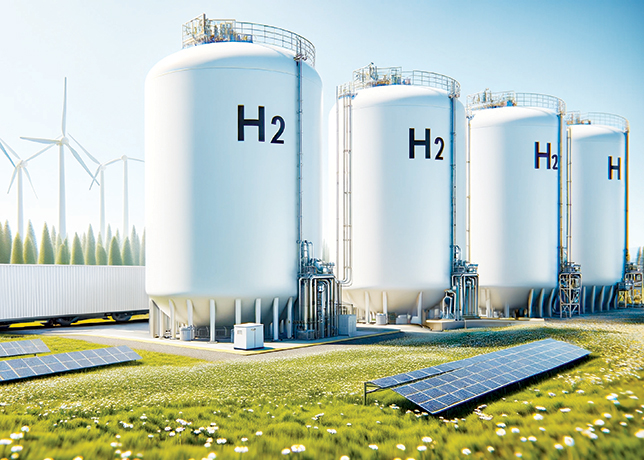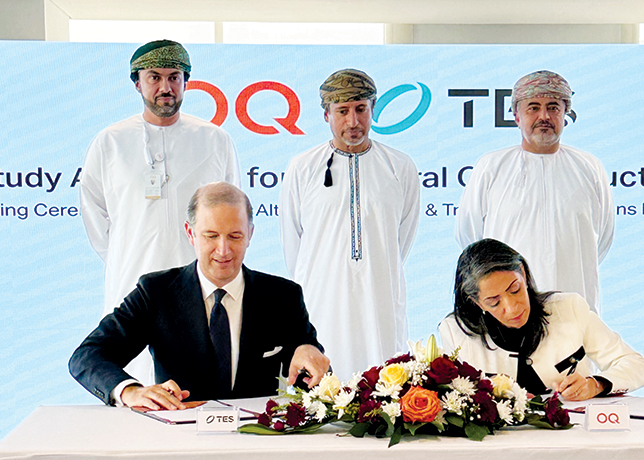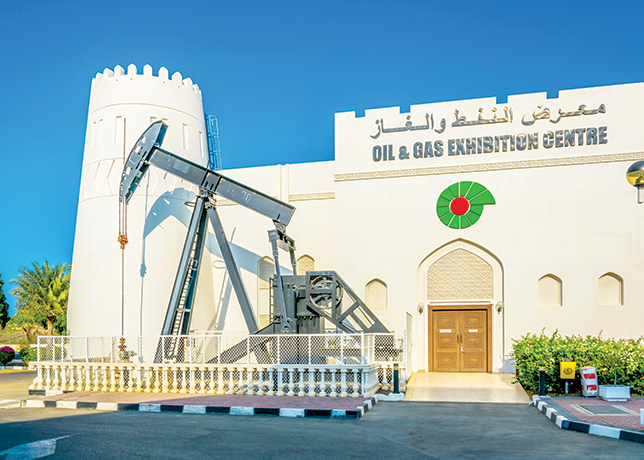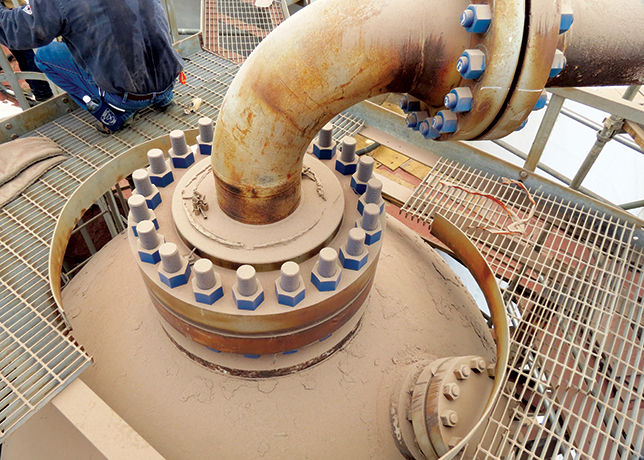
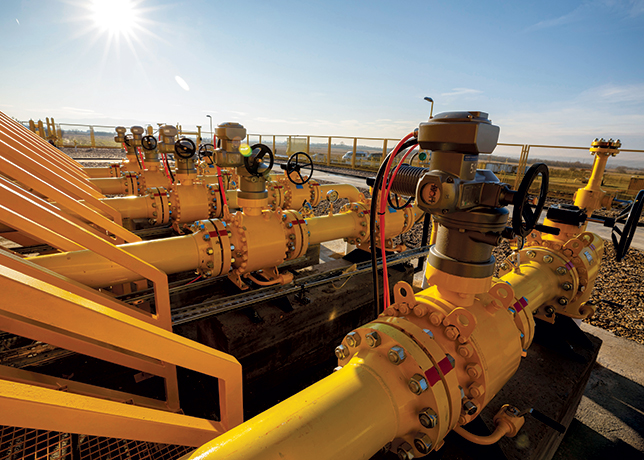 The construction of new loop lines aims to boost capacity and will aid OQ Gas Networks in meeting future gas demands
The construction of new loop lines aims to boost capacity and will aid OQ Gas Networks in meeting future gas demands
OQ Gas Networks is enhancing Oman’s South Gas Grid with a $245 million project involving the installation of two loop lines to increase capacity and efficiency, with 90 per cent completion and a targeted finish by Q4 2024
OQ Gas Networks, a leading gas infrastructure company in Oman, has embarked on a significant endeavour to enhance its South Gas Grid.
The project, dubbed the South Grid Debottlenecking, Phase 2, involves the installation of two extensive loop lines aimed at increasing the grid’s capacity and efficiency.
This ambitious initiative, with a substantial revised budget of $245 million, reflects OQ Gas Networks’ commitment to strengthening Oman’s energy infrastructure and meeting the growing demand for natural gas in the region.
PROJECT OVERVIEW
The main contractors tasked with the execution are Elecnor and Gulf Petrochemical Services, both renowned for their expertise in gas and pipeline infrastructure.
The project also involves several sub-contractors, including Larsen and Toubro for electrical and automation services, Intelec for LV and control systems, and Point B Services Engineering Technology for pipe coating
services.
The South Grid Debottlenecking project is divided into two primary loop lines:
• Loop 1: A 32-km, 32-inch NPS natural gas pipeline situated in the Hubara area, stretching between BVS-09 and BVS-10.
• Loop 2: A more extensive 175-km, 32-inch NPS natural gas pipeline running from Thumrait to Salalah, connecting BVS-17 to the Raysut terminal.
The project involves comprehensive work, including pipeline installation, trenching, welding, coating, and integration with existing infrastructure.
The scope also covers the construction of new block valve stations, pressure control systems, a leak detection system, and various civil, electrical, and telecom works.
PROJECT TIMELINE & PROGRESS
The project was first announced in Q1 2020, with the tender for the engineering, procurement, and construction (EPC) contract issued shortly after.
The evaluation of technical and commercial proposals took place throughout 2020, leading to the awarding of the EPC contract to a joint venture of Elecnor and Gulf Petrochemical Services in February 2021.
In April 2021, ILS completed the transportation of the third pipes shipment, marking a crucial logistics milestone with a total of 4,452 pipes delivered to the project site.
Then in October 2021, pipe stringing works commenced, setting the stage for the subsequent phases of the project.
In February 2022, Point B Services Engineering Technology was awarded a contract to provide concrete weight coating for the pipeline, ensuring durability and stability.
Throughout 2022, significant progress was made. This included the transportation of all 32-inch line pipes in May 2022 to the project site, and pipeline fabrication was well underway.
In July 2022, pipeline installation progressed at full swing, with Elecnor handling fabrication and GPS managing valve supply and installation.
And in October 2022, Intelec successfully completed the Factory Acceptance Test (FAT) on LV Switchboards, and pipeline welding and lowering into the trench continued.
By 2023, the project had reached critical stages. In March 2023, Elecnor celebrated the completion of 200 km of automatic welding using the electore automatic welding system (EAWS), a testament to the project’s technological sophistication.
In June 2023, Point B Services Engineering Technology completed over 12 km of concrete weight coating, further advancing the project’s physical infrastructure.
As of June 2024, the project is 90 per cent complete, with Loop Line 1 fully finished. The final stages involve rigorous testing and quality assurance to ensure the new pipelines meet all safety and performance standards.
The project is on track for completion by Q4 2024, marking the end of a significant phase in Oman’s energy infrastructure development.
CHALLENGES & ADAPTATIONS
Initially estimated at $150 million, the project’s budget was revised to $245 million. This increase reflects the complexities and unforeseen challenges encountered during execution, including the need for additional resources, advanced technology, and extended timelines to ensure the highest standards of safety and efficiency.
The project faced several technical and logistical challenges, from transporting massive quantities of pipes to coordinating multiple contractors and sub-contractors.
The use of advanced technologies such as the EAWS for automatic welding and comprehensive testing procedures underscored the project’s commitment to quality and innovation.
STRATEGIC IMPORTANCE
The South Grid Debottlenecking project is pivotal in enhancing the capacity and reliability of Oman’s natural gas infrastructure.
By alleviating bottlenecks and expanding the grid’s capacity, OQ Gas Networks aims to ensure a stable and efficient supply of natural gas, critical for both domestic consumption and industrial use.
This project is not only a technical and engineering achievement but also a strategic investment in Oman’s economic growth.
By ensuring a reliable supply of natural gas, the project supports the development of various sectors, including manufacturing, power generation, and petrochemicals, driving economic diversification and sustainability.
OQ Gas Networks has placed significant emphasis on environmental and safety considerations throughout the project’s lifecycle.
The implementation of a pipeline leak detection system (LDS), advanced coating technologies, and rigorous testing procedures are all part of a comprehensive approach to minimizing environmental impact and ensuring the safety of both the infrastructure and the surrounding communities.
Upon completion, the South Grid Debottlenecking project will serve as a foundation for further expansions and upgrades.
OQ Gas Networks plans to continue enhancing its infrastructure to meet future demands and support Oman’s long-term energy strategy.
The project has showcased the potential of technological innovations in pipeline construction and management.
The successful implementation of the EAWS and other advanced systems sets a precedent for future projects, highlighting the role of technology in achieving efficiency and reliability. By collaborating with international and local contractors, OQ Gas Networks has reinforced its commitment to regional cooperation and knowledge sharing.
This collaboration not only enhances the project’s execution but also contributes to the overall development of expertise and capabilities within the region.
CONCLUSION
The South Grid Debottlenecking, Phase 2, project is a landmark initiative for OQ Gas Networks and Oman’s energy sector.
With its completion on the horizon, the project stands as a testament to the company’s dedication to excellence, innovation, and strategic growth.
As OQ Gas Networks continues to drive forward with its ambitious plans, the successful execution of this project marks a significant milestone in the journey towards a robust and sustainable energy future for Oman.
By Abdulaziz Khattak











































































